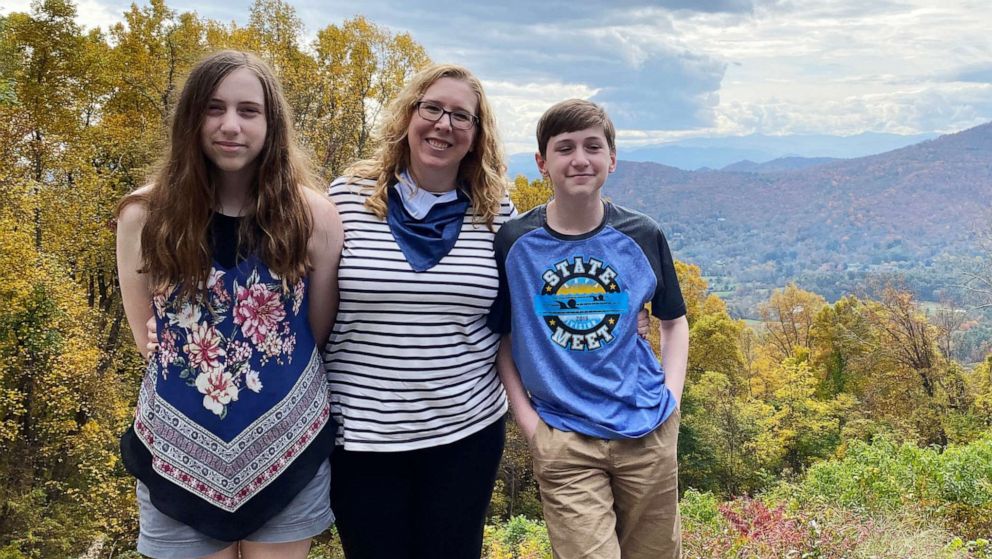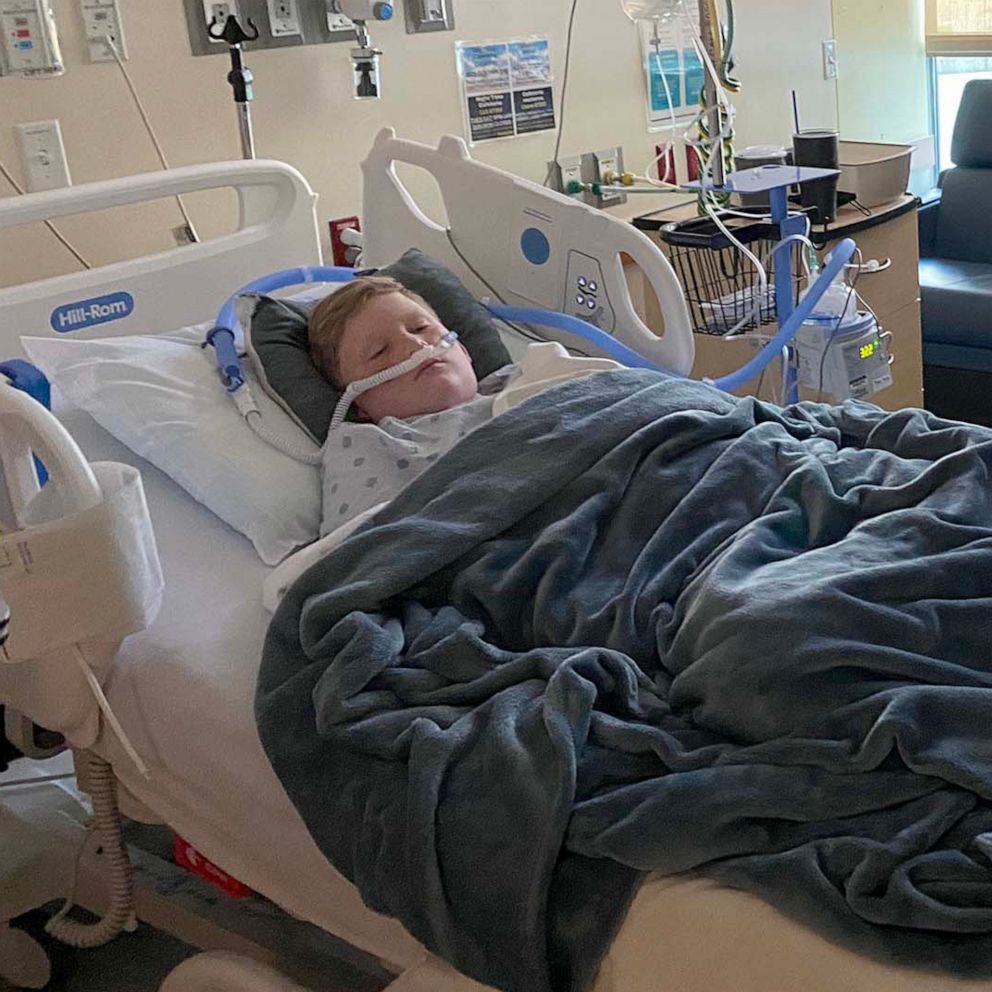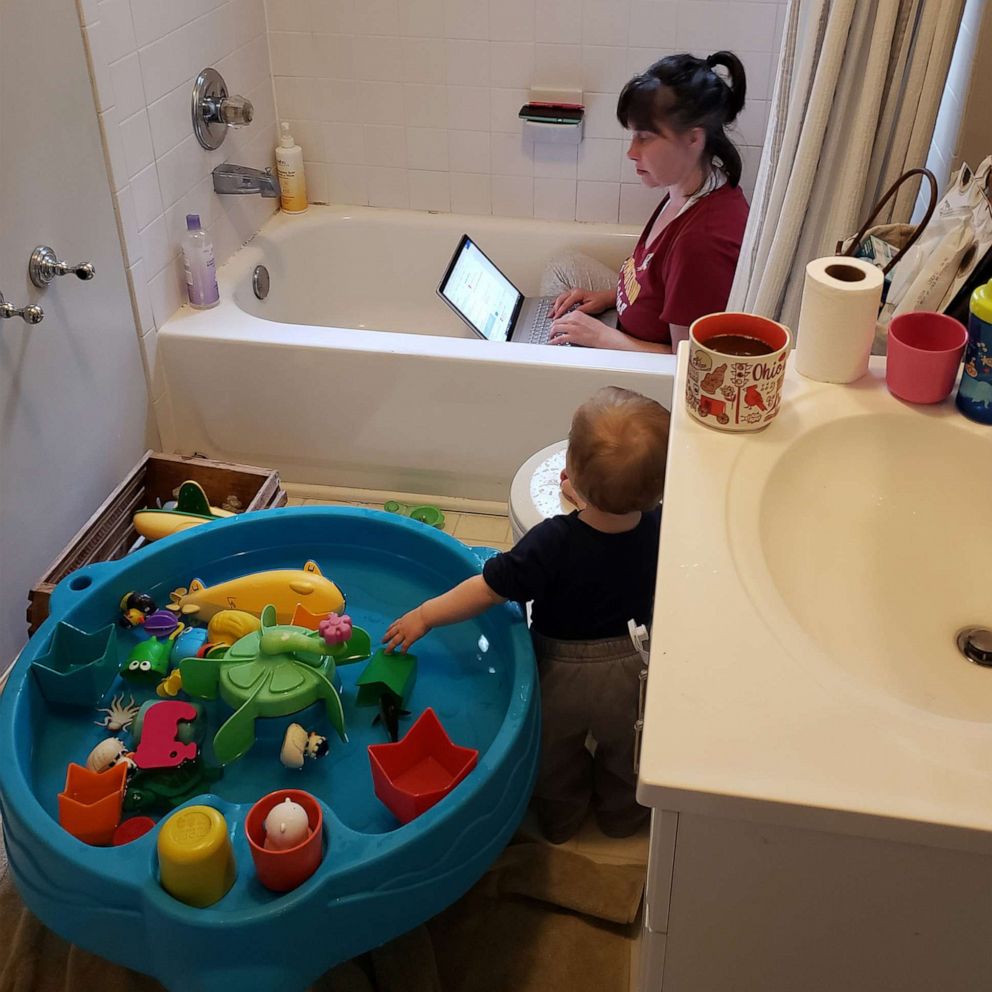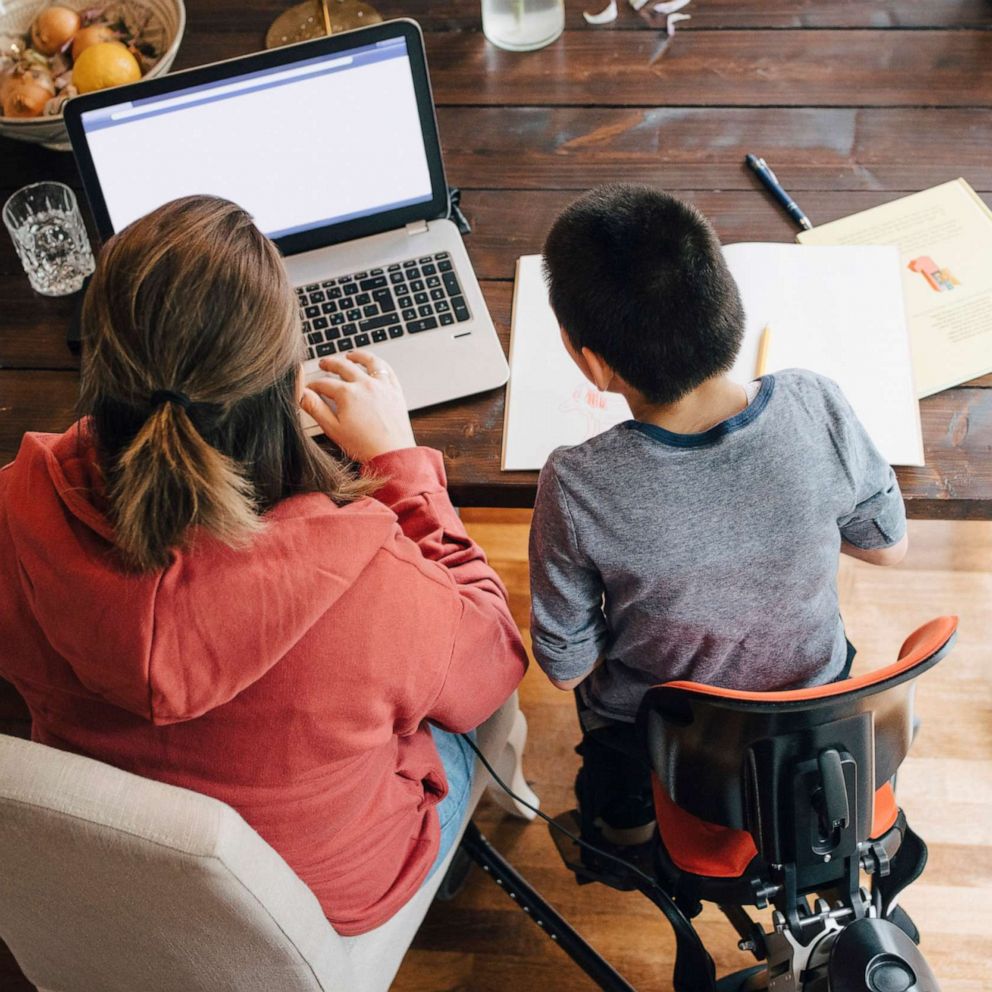Mom describes exhaustion with school year upended by COVID-19: 'I wake up every day frustrated'
A Georgia mom's struggle with COVID-19 in her children's schools is resonating with other moms who also trying to navigate the new school year, the third school year in a row to be upended by the coronavirus pandemic.
Atlee Breland, who lives in an Atlanta suburb, took to Twitter earlier this month after her three children -- 15-year-old twins in ninth grade and a 13-year-old in seventh grade -- developed runny noses, coughs and fevers.
Breland then elaborated in a series of tweets all that she had to do to get her kids, who have been vaccinated, tested for COVID-19, in order to try to keep them and their classmates and teachers safe.
She described using at-home COVID-19 testing kits she had purchased, on which her three children tested negative. But because she did not take pictures of the negative result, she was not able to upload any documentation to the school portal, Breland explained.
Breland said she then tried to get her kids' testing appointments at local pharmacies to no avail. The county provided a testing option, but Breland said the results could take as long as one week, which meant her kids would miss school.
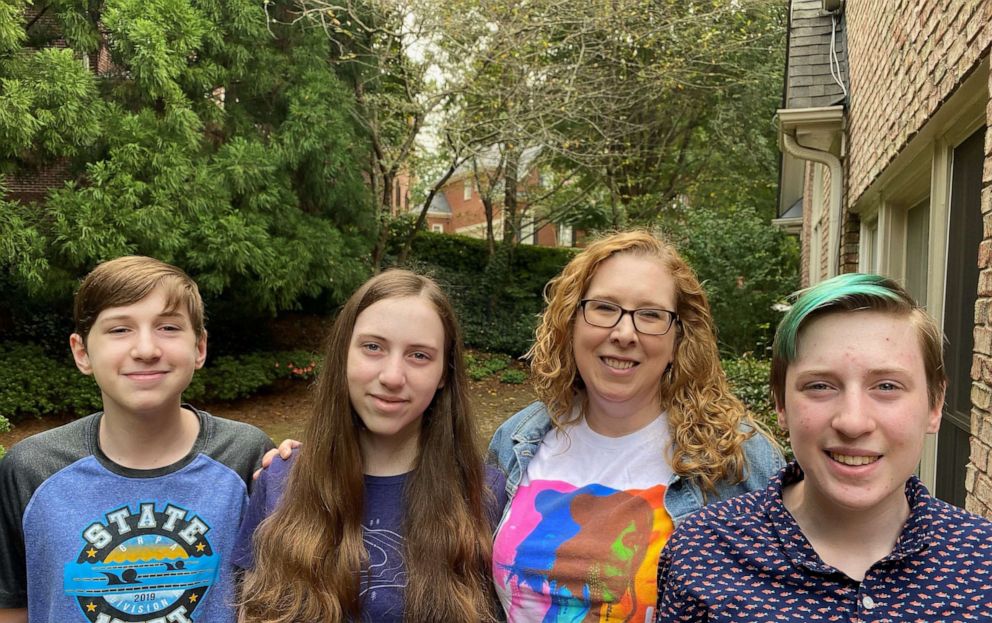
"If I am very lucky, the pediatrician will have a testing appointment tomorrow, I will only have to cancel three or four meetings to get them there, and the results will be back in 48 hours so they can go to school on Friday," she wrote. "We are about to start week 5 of school. Each child has missed 3 days due to illness/quarantine already. By Friday, it'll be 7 days, or 25% of the school year."
"There is no remote-attendance option. These are actual absences, missed classroom time, make up tests/quizzes later," Breland continued. "I have great health insurance, a master's degree, money to burn, and two parents with a flexible work schedule. I have middle/high schoolers who don't need direct supervision during all this time off.
She added, "I know how lucky I am, and even so, THIS IS UNSUSTAINABLE."
Breland told "Good Morning America" she was motivated to post about her experience on Twitter after growing frustrated by trying to do the right thing but seeing that neither she nor other parents are "set up for success."
"I wake up every day frustrated," she said. "Every day it's like pushing boulders up the hill, and there is no parent and no teacher and no school that isn't having to struggle through this."
All you want to do is go into the backyard and scream.
Breland said not only are there the logistics of testing and quarantining and missed school for parents to deal with, but also the need for them to stay calm for their kids, saying, "As a parent have to be in an emotional space where you can be the calming voice and the reasonable voice when really all you want to do is go into the backyard and scream."
As a manager in her full-time job, Breland said she is also trying to help her employees who are parents as they face the same battles.
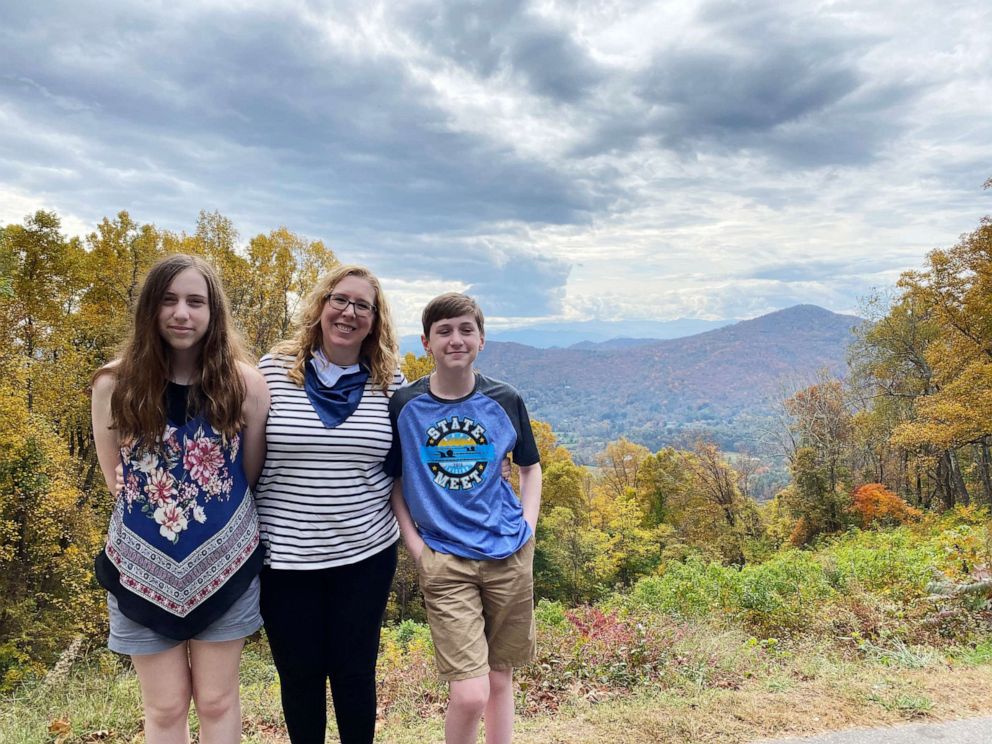
And the topic of school and children and COVID-19 is all she and her kids' friends' parents talk about too, according to Breland.
"Every conversation you say, 'What are you all doing for school this year? How do you feel about it? Is everybody okay? Is everybody staying well?'" she said. "It eats up all our brain space."
The frustration felt by Breland and other parents across the country comes as the United States continues to face a COVID-19 surge as the more contagious delta variant spreads and vaccination rates remain low for some age groups.
The surge in cases is happening as students are back in school, resulting in new demands on parents and school officials when it comes to testing and quarantining.
More than 1.2 million children have tested positive since they returned to classrooms in late July.
More than 1.2 million children have tested positive since they returned to classrooms in late July, according to the American Academy of Pediatrics and the Children’s Hospital Association.
"We know that the delta [variant] is more infectious in nature, and that also pertains to children," said Dr. Bessey Geevarghese, a pediatric infectious disease expert at Northwestern Medicine Central DuPage Hospital. "So we're definitely are seeing more [COVID-19] positive kids."
While policies may vary by school district, the general recommendation is for people to quarantine for 10 to 14 days after being in close contact, like a classroom, with someone who is COVID-positive, according to Geevarghese.
When it comes to testing, Geevarghese said the recommendation is to wait and get tested three to five days after exposure to COVID-19. And even if the test is negative, the quarantine should still last 10 to 14 days.
If a person starts developing symptoms or tests positive for COVID-19, the quarantine starts on that day, explained Geevarghese.
"Symptoms like a fever, cough, severe fatigue, loss of taste or smell, those should peak your concerns," said Geevarghese. "I would encourage parents to have a high index of suspicion and definitely not send your child to school if they're not feeling themselves."
Parents can also help their kids stay as safe as possible by following general COVID-19 guidelines, like wearing a face mask indoors, practicing social distancing and keeping children, especially those not old enough to be vaccinated yet, only around people who are vaccinated, according to Geevarghese.
"All the things that we've sort of harped on over the last few months definitely do play a role in decreasing transmission, especially to those kids that are not yet eligible to get a vaccine," she said. "I know we’re fearful of sending kids [to school] but if everyone follows the guidelines, we really can keep our kids in school, which is so important for them."
